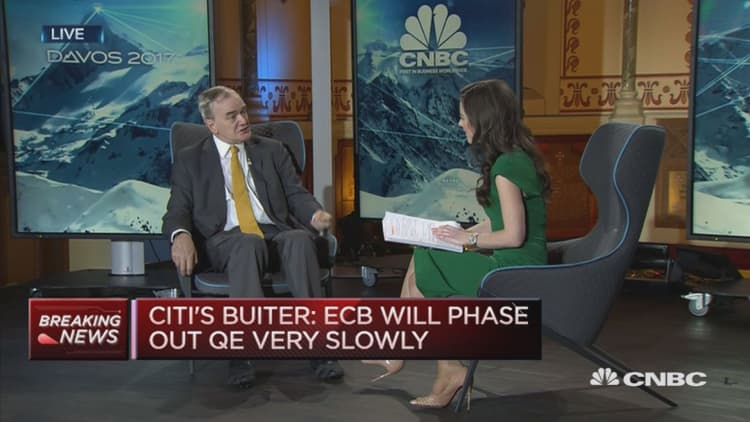The different inflation dynamics between the euro zone as a whole and Germany make the region's monetary policy "politically" awkward, the global chief economist at Citigroup told CNBC.
The latest figures showed that inflation stood at 1.1 percent in December across the euro area. However, in the region's biggest economy — Germany — inflation was 1.7 percent, way closer to the 2 percent that the ECB has targeted.
"Inflation in the euro zone is still below target, there's no need to raise rates or to tighten monetary policy," Willem Buiter, global chief economist at Citigroup, said at the World Economic Forum in Davos.

"It is the euro zone that matters, politically of course, it is awkward because Germany is the biggest voice," Buiter said.
President Mario Draghi of the ECB has been pursuing a loose monetary policy to revamp the low levels of inflation. However, he has often been under criticism by German officials for keeping low rates for too long and thus hurting savers.

The ECB decided Thursday to keep its rates unchanged.
Last December, the bank announced it would extend its bond-buying program albeit at a reduced pace of purchases. These would be scaled back from 80 billion euros ($85.3 billion) a month to 60 billion euros from April onward.
According to Buiter, the ECB will not increase rates before 2019 and it will be scaling back its quantitative easing program "very slowly."






